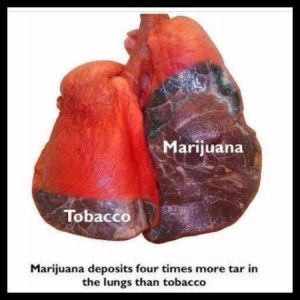5.3 Fact Checking Websites
Nowadays, there are several fact-checking or debunking websites online. To debunk something is to eliminate the ‘bunk’ or nonsense from it, for our purposes to debunk means to expose information from any source as being false (Merriam-Webster, n.d.c). Some experts suggest that before believing or sharing a story, individuals should look at fact-checking websites to see if the claim has already been debunked (Caulfield, n.d.). Sometimes a simple Google search is enough. If a person searches for the headline of the story they’re curious about with the key term “fact check” or “verify” or “debunk,” there is a good chance someone else has already evaluated it and identified any false claims.
Here is a list of fact-checking websites that were functional in 2022:
Fact-Checking Website Example
Sheila has been having a difficult time quitting smoking. She knows that it’s bad for her, after all the media has been screaming about it for decades. Even though her family pleads with her to quit, she doesn’t understand why it’s such a big deal. After all, in 2017 the Government of Canada legalized marijuana, and she’s pretty sure that marijuana is much worse for you than smoking. She knows this because of an infographic that appeared on her Facebook newsfeed:

If the government supports marijuana use then surely she can continue to use tobacco with minimal health risk, right?
Let’s fact-check Sheila’s infographic. A quick visit to snopes.com indicates that this infographic is considered a skewed version of reality. As suggested in the article, the claim made in the infographic is somewhat true (Evon, 2015). Inhaling smoke from marijuana does deposit more tar in the lungs of its users because it is usually not ingested through a filter, whereas cigarettes usually are. However, this is only one part of the story, an example of deformation. When examining claims such as these, individuals must review all the facts. An examination of other scientific studies reveals that when cigarette smokers’ habits (20-30 smokes a day) are compared with the habits of a cannabis user (1-2 per day), the cigarette smoker, even with filters, will eventually amass much more tar in their lungs than a cannabis user (Evon, 2015). Further to that, several studies have discredited the suggestion that marijuana users are likely to get lung cancer (Evon, 2015). Debunking the infographic took less than 1 second by searching Snopes and the review of the article took less than 5 minutes. This is a quick way to determine whether a claim on the Internet is true. Perhaps if Sheila were to review this article, she might be more likely to consider quitting smoking?
Final Thoughts. Although fact checking and debunking websites are good tools for quick answers about a website or an article, when it comes to academic work or research that could lead to serious consequences, such as health information, it is wise to evaluate using more robust methods such as the ones that follow.

